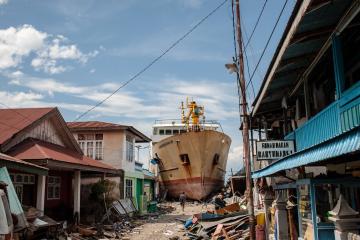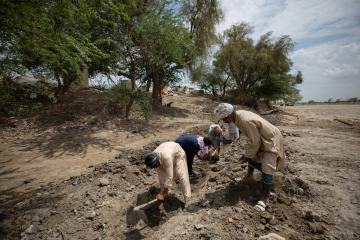The DEC, including its member charities, uphold the humanitarian principles of humanity, neutrality, impartiality and independence.
These principles govern the humanitarian response and coordination work funded by DEC appeals.
Humanity
Human suffering must be addressed wherever it is found. The purpose of humanitarian action is to protect life and health and ensure respect for human beings.
Neutrality
Humanitarian actors must not take sides in hostilities or engage in controversies of a political, racial, religious or ideological nature.
Impartiality
Humanitarian action must be carried out on the basis of need alone, giving priority to the most urgent cases of distress and making no distinctions on the basis of nationality, race, gender, religious belief, class or political opinions.
Independence
Humanitarian action must be autonomous from the political, economic, military or other
objectives that any actor may hold with regard to areas where humanitarian action is
being implemented.
Ensuring quality standards
DEC charities are also signatories to the Code of Conduct for the International Red Cross and Red Crescent Movement and NGOs in Disaster Relief, and all our humanitarian action adheres to the Humanitarian Charter.
Additionally, DEC member charities are required to sign up to and be periodically audited against the Core Humanitarian Standard on Quality and Accountability (CHS) which sets out nine commitments to ensure that organisations support people and communities affected by crisis and vulnerability in ways that respect their rights and dignity and promote their primary role in finding solutions to the crises they face.
DEC member charities have also agreed an Accountability Framework that reflects the highest quality standards in the sector. The DEC plays an oversight role to ensure accountability and transparency through reporting and external review and evaluation of programmes.


















